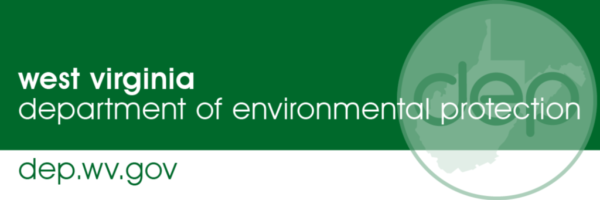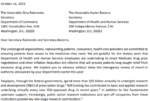
The West Virginia Department of Environmental Protection’s (WVDEP) Division of Air Quality (DAQ) is holding an in-person public meeting to provide information and answer questions and a virtual public hearing to receive official comments regarding Union Carbide Corporation Institute’s draft Title V operating permit renewal for the operation of its Distribution System for Ethylene Oxide, located at 250 Carbide Road, Dunbar, WV.
The purpose of the in-person public meeting is to provide information and answer questions on the Title V operating permit renewal. Official comments will be taken at the virtual public hearing. Notice of the in-person public meeting and virtual hearing was also published in the Charleston Gazette-Mail on Friday, December 9, 2022, distributed through the WVDEP public notice email list, and added to the agency’s website.
A separate public meeting on the final report for WVDEP’s short-term air sampling project for Ethylene Oxide will be held at a later date to be determined. Those details will be announced once finalized.
Title V of the Federal Clean Air Act and the state Air Pollution Control Act requires that all major sources and certain minor sources have a permit to operate. A Title V operating permit states all applicable air requirements (e.g. emission limitations, monitoring requirements, etc.) established by regulations promulgated under the aforementioned programs.
The in-person public meeting is scheduled for Monday, January 9, 2023, from 6 to 8 p.m. in the James C. Wilson University Union ballroom on the campus of West Virginia State University. WVDEP staff will give a brief overview to open the meeting and then be available to meet with citizens, provide information, and answer questions.
The virtual public hearing is set for Tuesday, January 10, 2023, from 6 to 8 p.m. To register for the public hearing, please complete the registration form at: https://forms.gle/uxhyEBvEaQYeScrR9.
A confirmation email will be sent with information on how to join the public hearing. If you do not have internet access and want to register, please contact Sandie Adkins or Nicole Ernest at (304) 926-0475.
Registration is required by 4 p.m. the day of the hearing.
If you wish to speak at the virtual public hearing, verbal testimony is limited to 3 minutes for each commenter. If time allows, commenters may be given the opportunity to provide additional comments.
Please note that verbal comments will only be accepted at the virtual public hearing on January 10. Written comments can be submitted to the agency at any point until 5 p.m. on Friday, January 20, 2023.
Written comments may be submitted via email to Jonathan.W.Carney@wv.gov (phone no.: 304-926-0499 ext. 41247) with “Union Carbide Corporation Title V comments” in the subject line, or by mailing a hard copy of the comments to the attention of Sandra Adkins at the West Virginia Department of Environmental Protection, Division of Air Quality, 601 57th Street SE, Charleston, WV 25304.
A copy of the draft permit, fact sheet, and other supporting materials are available here: https://dep.wv.gov/daq/permitting/titlevpermits/Pages/default.aspx.
All comments received by the agency will be reviewed and considered prior to making its final determination on the renewal application.
- Ethylene oxide (EtO) is a cancer-causing chemical that has also been shown to have reproductive effects. It has been used in the Kanawha Valley since the 1920s. Recently, the Environmental Protection Agency (EPA) realized that EtO is much more cancer-causing than they previously realized.
- The Union Carbide facility in Institute, WV is currently requesting that the DEP renew their air permit (called the Title V permit) that allows them to emit EtO into the air. Recent air samples of the chemical taken by the DEP at the fenceline of the Institute and South Charleston Carbide facilities confirm that the amounts of EtO being emitted from these facilities are much higher than what the EPA thinks is an acceptable cancer risk, but they are permitted to emit even more.
- Anyone who lives, works, studies, plays, prays in and around and travels through the Institute community may be exposed to this carcinogenic chemical.







